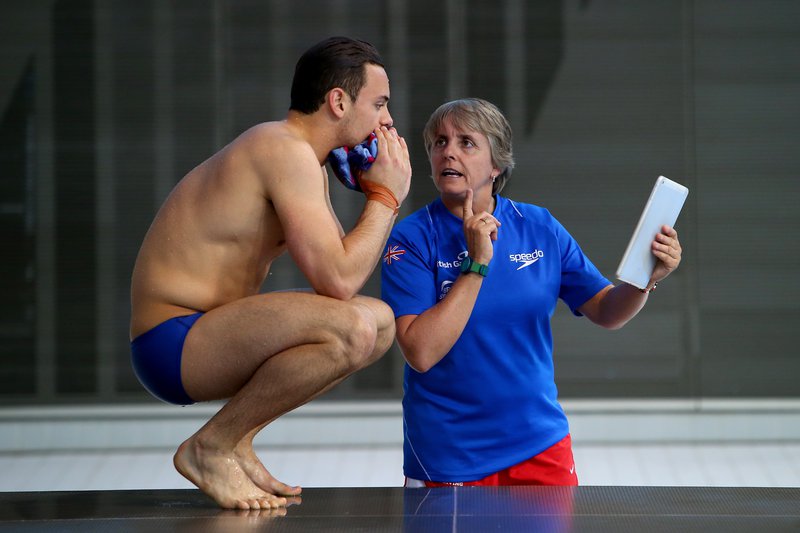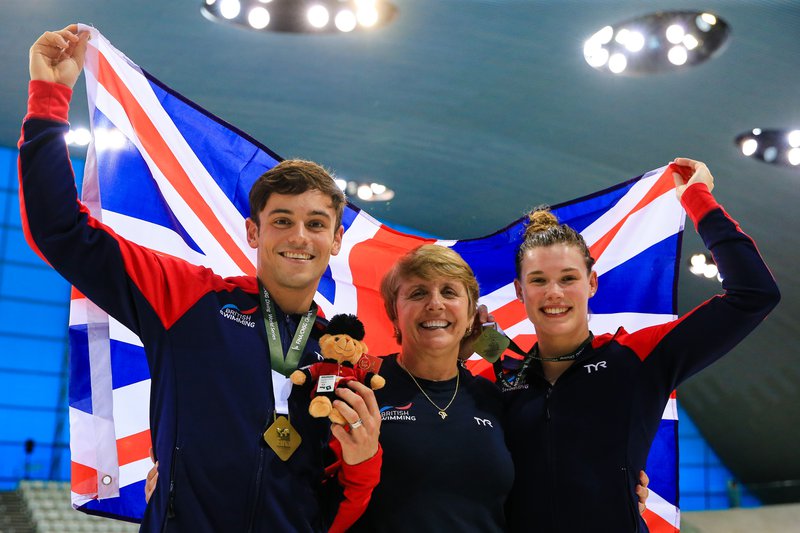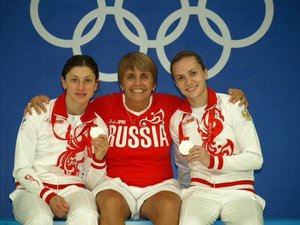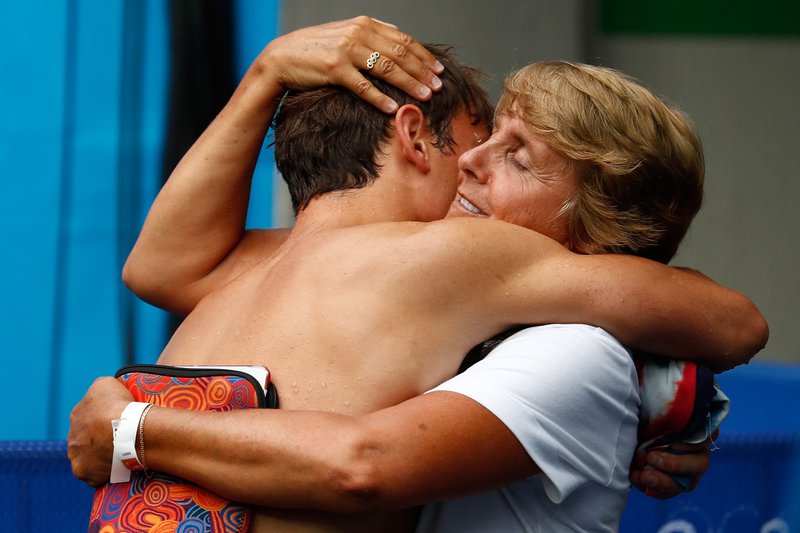In the second part of our Women In Water feature interview with Jane Figueiredo, she talks us through her move to London and discusses diversity in aquatics.
(Part one of the interview can be found
here)
“I moved to London in January of 2014. Tom Daley came to Houston for the first time in September 2013, and I moved to London the following January. I was pulled and dragged and eventually relinquished!
“On a serious note, he is just this very special person, and I mean that. I always say he's a special person first, because the diving was secondary for me. I would say that making the decision to come and coach Tom was first of all because of the way he made me feel when he came to see me, visit me and train with me.
“Coaches always talk about how you're only going to get so many athletes in your whole career and you're going to be very lucky to have those, and they may never come around again. Then comes along Tom Daley. Although he was a bronze medallist in London, and very worthy of that, there was just so much more I could see in him that we could develop, and shoot for a gold medal.

“It was going to take everything, pure sacrifice, which is what I talked about. First of all, he drew me in because of who he is and his enthusiasm. Then, of course, his passion and enthusiasm for the sport of diving, in that order. It was never, 'wow, I'm going to get coach a great diver' - it's never about that. You don't pick them, they pick you!”
Under Jane’s guidance, Daley continued to flourish and it wasn’t too long before Dive London was in the pipeline.
“Tom has a lot to do with that, because first and foremost, we needed other divers, as much as it was phenomenal that we got to spend a year together, just him and I, really one-on-one.
“It was probably a lot harder for him than it was for me, because I relished the opportunity just to have this one-on-one time and to really get to know him and him to know me. I figured we were never going to have that opportunity again, because once that first year passed, we were looking for people to come in and actually be teammates for Tom.”
From there things slowly picked up pace, and post-Rio the club started to thrive, with Grace Reid, Matty Lee and Robyn Birch also looking to Jane to take their careers to the next level.
“We now have a group of four amazing human beings who really commit and dedicate and do what it takes.”

And with a woman who has experienced many different cultures and coaching styles, you’d struggle to find a better teacher.
“Obviously going from an American culture to a British culture, you have to deal with so many different kinds of cultural things! The American culture is quite fast, they get things done, it's quick, it's snappy, it's pushy, and it's the way sport works in that country. You snooze, you lose. If you're not continuously succeeding, you're done.
“My mum is British, but she grew up and lived her whole life in Africa, so even though she's British I wouldn't say she's British in a cultural sense. Then going from that to a Russian culture which is just so different – I probably learnt a lot of my discipline and passion and forth righteousness, just being able to make decisions quickly, through the Russian system.
“I was thrust into that environment at a very young age, 28 or 29. It was amazing. I've got nothing but complete respect for everything that I gained from that system, with Alexei. Keep in mind, I was coaching in the US with his Russian divers, so there was a lot of pressure on us and me to deliver an incredible quality of diver who was not already made, but at least 60 or 70 percent of the way there, and my job was going to be to take them the extra 30 per cent. If you know much about sport, that extra 30 per cent is all about the details, and having fun and trying to enjoy the process with a lot of pressure, because they were top three in the world, every one of their divers.
“I didn't know a lot, I didn't think, as a coach when I started coaching them - and then of course learned probably everything I needed to know at that time by coaching them and being in their system, being in Russia, staying there for weeks on end and being immersed into that culture where nobody speaks English.

“It was a very lonely time as a coach, because I didn't really have anybody to bounce things off and say 'hey, how you guys doing?' That was a different environment but I wouldn't trade it for the world. Out of that experience, we got a lot of medals, and of course the passion to always succeed, and if you're not doing it to win, why are you doing it? That was their motto.
“I didn't know anything different, because they were winners, and they did everything, sacrificed everything. That’s unlike what we preach today, which is about having good balance, and that's fantastic too, and those are the times we live in today. But to truly be a winner, I think the ultimate sacrifice is everything - especially when you are looking at a gold medal.
“If I had to look at all the past gold medals in the sport of diving, one thing that definitely stands out is complete sacrifice - and possibly at a detriment to everybody.”
So with such a wealth of experience, it is perhaps surprising that Figueiredo goes right back to day one when asked who her role models are.
“My two coaches in Zim, who were Ron Wood and Adrian Wilson, particularly them because we were diving seven days a week, even on Christmas Day. Those people are still very, very important in my life and, to this day, teach me life lessons as well as coaching lessons.
“Then, of course, my couple of coaches in Houston who were also significant in my coaching career, as well as the likes of my mum, who is such a strong woman, and I think I'm more like than her than anybody. I was just telling Adrian today that my mother is like a rock. Everything I learned, a lot of the qualities of a coach that I am today are from her; resilience, it's going to be okay, just keep going.
“Then it's just my divers - they are really my source of inspiration. That's not one easy answer, but they are all instrumental in different aspects of my life, and I'd be remiss to not mention all of them!”
Many people still make a big deal of females coaching male sporting stars. Mel Marshall and Adam Peaty is an obvious one, as well as Jane and Tom.
“I've had people who've come to the pool and interviewed me and said, 'do you feel as a woman coach that you're a minority?'. I say, 'I never looked at it like that, because I never believe you should be using that as a crutch'. I think women coaches and the male coaches of the world encourage the women coaches. I have always been nothing but encouraged and been supported, 'go get it Jane', even coaching a guy like Tom Daley - people say, 'you must be one of very few women that coaches a man'.

“I'm sure Mel [Marshall] gets the same question. I'm sure she gets bombarded with those sorts of questions. As a strong, passionate, female coach, we don't see it like that. We see it as, 'I've got the tools, I'm good enough, therefore if somebody, a man or a woman comes knocking on my door, that's not something I actually notice’. In Russia, the majority of coaches are women, and they all coach the top male athletes.
“So being Tom Daley's coach and being a woman, that's not something I even think about. It's certainly not something I fall back on if I want to find an excuse for anything. Britain’s Artistic Swimming coach, Paola Basso, has reached out to me before - but not about being a female coach, just about how to motivate her athletes, what do I do in certain circumstances to get a better outcome? So when we are talking to each other, it's more about what is your experience and how can I get a better outcome from my athletes?
“For me as a female coach, in the sport of diving, we have a vast number of women coaches in the sport, a vast amount. So I don't think there's anything that has held them back, which is absolutely fantastic.”
So what about the importance of driving more diversity in aquatics sports across the board, and in the world in general?
“That's just an awesome question, because you just made me think of something in particular.
“It's not what you're faced with - it's how you respond and how you react.
“I think in any culture, and when I think about my American culture, my British culture, my Russian culture and whatever other culture transpires in the future, I will not look to react, I will look to respond in the most positive way I can. That's something we should really be looking at, as opposed to worrying about whose life matters. I think we are all in agreement that everybody's life matters.
“But as far as race, religion or culture, I would just prefer to say that the way you respond is much more indicative of who you are, than the way you react. So if I'm going to teach my kids anything, it's responding in a positive manner that makes any culture, any race, any religion feel comfortable in your presence.
“That's all we can do, because I can't change all the wrongs of the world. Keep in mind that I grew up in a country with a lot of wrongs. But we don't go around advertising that fact. What we do is try to just make it better wherever we are.
“If I'm going to teach my young divers or athletes in any sport or life a skill, it's going to be that. It's what you do with it that matters. It doesn't matter if it's a yellow, green, black, white, red life. Just be kind, be courteous, and that's it, because everybody's different.”
If you missed the first part of our edition with Jane Figueiredo you can find it here, and remember to look out for the next instalment of our Women In Water series in September.

